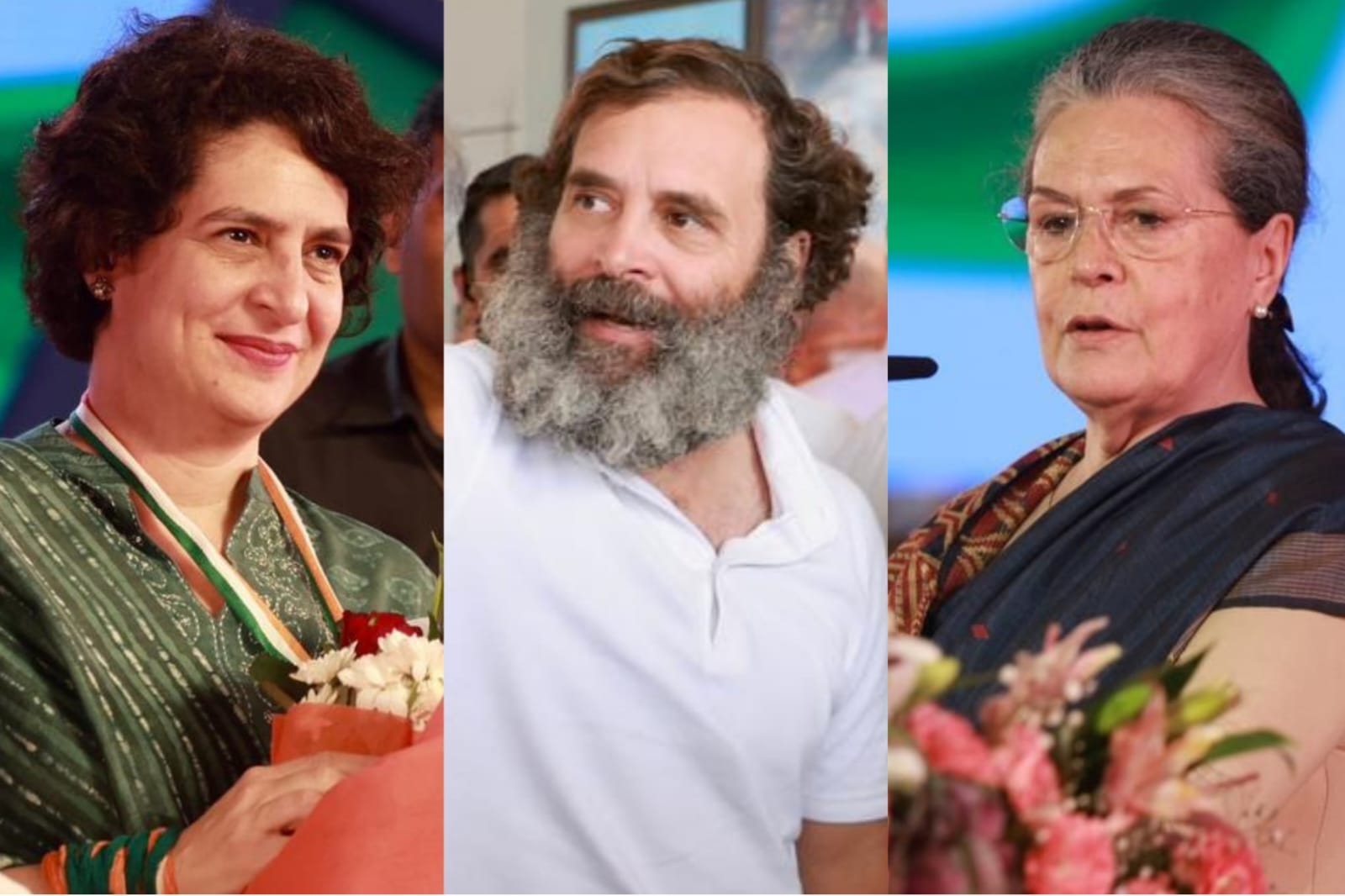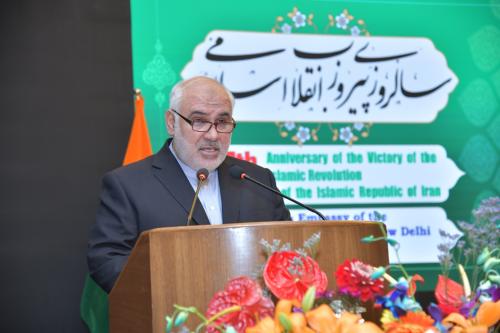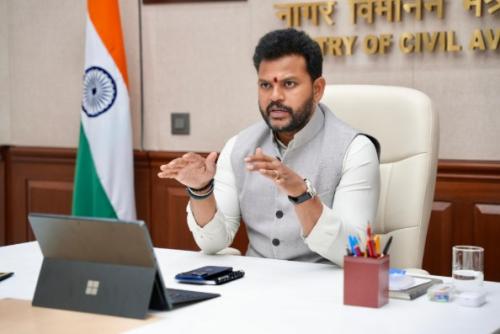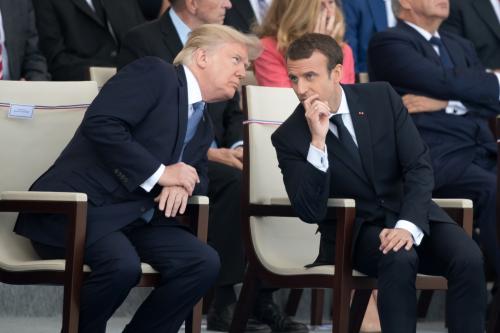DEEPIKA BHAN The more things change, the more they stay the same. This well-known expression, first used by a French writer in 1949, reflects the truth about the Congress today. The Sonia-Rahul-Priyanka trio may be vouching to bring a change in the party to get back the lost fortunes, but the steps taken stealthily ensure that everything stays the same. In the end, everything always goes according to a 'strategic' script overseen by the trio. The 85th plenary session of the Congress is an example of this. Whether it was a decision about holding elections to the Congress Working Committee (CWC) or changing party rules or anything else, all was to ensure that everything stays the same. And, the 'same' means keeping it the family way. Despite public posturing of the party leadership on holding elections to the CWC, no election took place. The high-powered steering committee, empowered party president Mallikarjun Kharge to nominate the new CWC members, was not attended by the Gandhi trio. The absence of the family was to create an impression that decisions are being made independently. But the very fact that the party retained the nomination culture in the CWC belied the claim. Had the elections taken place, Kharge could have joined P.V. Narasimha Rao and Sitaram Kesri, the two non-Gandhi party presidents who conducted CWC elections in 1991 and 1997 respectively. Kharge followed the nomination culture - a system that suits the family, indicating no independent way for the party president. Remember the relation between Rahul Gandhi and Manmohan Singh-led UPA government (2004-2013)? The former seemed to be at loggerheads with his own government most of the time. The 'activist' was often trashing his own people, and everything was 'run' by the National Advisory Council. This time a similar situation seems to be emerging, the only difference is that Mallikarjun Kharge is not the Prime Minister but the president of the Congress, and Rahul is on a similar divergent path. Kharge, the octogenarian chief of the grand old party, who of late has been trying to rally the opposition for a front against the BJP, had to face discomforting moments from none other than Rahul Gandhi. In Parliament, Kharge has been actively pursuing like-minded parties to take on the Centre unitedly, and was able to rally 14-16 political parties consistently in the budget session. Taking this forward, he said at a public meeting in Nagaland on February 21 that his party was in talks with other opposition parties, and asserted that "an alliance led by the Congress would come to power at the Centre in 2024." A day later a bitter war of words broke out between Trinamool Congress leaders and Rahul Gandhi after the latter attacked the former. Rahul while addressing a rally in Shillong, said: "You also know the history of TMC, you know the violence that takes place in Bengal. You know, the scams... the Saradha scam... that had taken place. You are aware of their tradition. They came to Goa and spent huge amounts of money. And their idea was to help the BJP. This is exactly their idea in Meghalaya. TMC's idea in Meghalaya is to ensure that BJP is strengthened and they come to power. Is Trinamool a silent partner of the BJP? ...Is it intentionally going to cheat the people of Meghalaya also?" What followed this surely must have jolted Kharge, and raised several eyebrows since there is this perceived cordial relationship that Mamata Banerjee and Sonia Gandhi share. In a direct attack, Trinamool national general secretary and MP Abhishek Banerjee said: "The Congress has failed to resist BJP. There irrelevance, incompetence and insecurity has put them in a state of delirium. I urge Rahul Gandhi to revisit the politics of vanity instead of attacking us. Our growth isn't driven by money, it is people's love that propels us." The Trinamool MP has pinned this tweet since then. Rahul's attacking Trinamool in Meghalaya may have suited the party's local calculations, but on the national perspective Kharge knew that this will not help him in his endeavour of striking an opposition alliance. Even during the party's plenary session in Raipur, he expressed willingness to work with like-minded parties and forge a viable alternative with them to take on the BJP. He also spoke of the UPA-like alliance at the Centre to take on the BJP, where the Congress led the alliance. Rahul's aggressive stance on opposition parties and Kharge's friendship hand present the Congress' confusing strategy which may not go well with anyone. Even within itself it has not been able to sort out its internal differences. Leaders continue to leave the party alleging disrespect, deviation from ideology, and drawing attention to internal suffocation. A day before of the party's Raipur plenary session, C.R. Kesavan, great-grandson of India's first Governor-General, C. Rajagopalachari, resigned, saying that he has not seen any vestiges of the values that made him work for the party with dedication for over two decades. In a letter to Congress president Mallikarjun Kharge, which Kesavan shared on Twitter and said that "he can no longer concur with what the party symbolises, stands for, nor seeks to propagate." He said he was with the Congress party for the past 22 years but over a period of time, the approach of the party was neither constructive nor concrete. Kesavan did not join Rahul's Bharat Jodo Yatra, and said he was appalled at Congress' questioning of surgical strike and also the reaction of seniors when President Murmu's candidature was announced. Kesavan's charges are similar to what Congress loyalist A.K. Antony's son Anil Antony had said when he resigned from the party. Reacting to Kesavan's resignation, Antony said: "This letter echoes thoughts shared by many within a party hijacked by a coterie with little understanding of public consciousness or national interest." Veteran politician Ghulam Nabi Azad had also referred to the coterie culture and disconnect with the grassroots and realities within the Congress before he quit the party. Dismissing the charges of those leaving the party, the Congress said it is fighting for a bigger cause, which is to defeat the BJP. And defeating the BJP is what will get the like-minded parties together and also unify the party from within, as the party leaders say. The Congress is banking upon the 'defeat-Modi' strategy to attract the opposition parties and also to set its own house in order. It is showcasing Rahul's Bharat Jodo Yatra, a success and a game changer for 2024. The test is not far away and the results of the elections in nine states may as well change a lot ahead of the final showdown in 2024. But, till then the Congress needs to keep its people together and those walking out are distressed by the erosion of the party's original values. The hard reality for the Congress is that it has lost 40 of the last 45 state elections and in the Lok Sabha, it has 52 MPs out of 543, and its strategy has been based on 'hate-Modi' theory.
As Cong seeks out allies, Gandhi trio still calls the shots
- by Rinku
- February 27, 2023 2 minutes

As Cong seeks out allies, Gandhi trio still calls the shots (IANS Column: FairPoint)
Oppose unipolar world running in US interests: Putin
February 27, 2023











